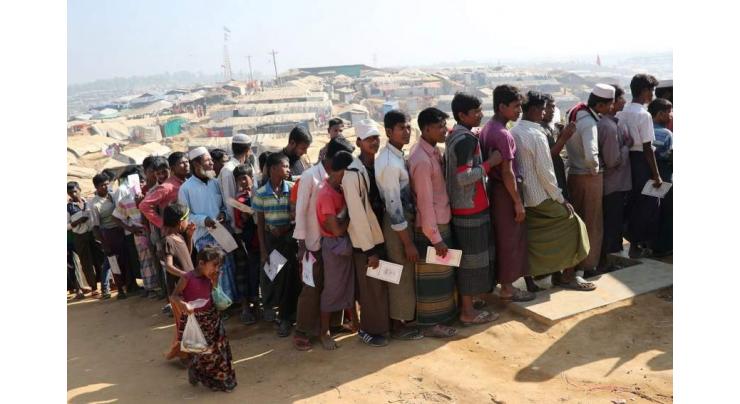
- Home
- World
- News
- Rohingya Refugee Return Must Happen Voluntarily, in Line With Humanitarian Norms - ICRC
Rohingya Refugee Return Must Happen Voluntarily, In Line With Humanitarian Norms - ICRC
Mohammad Ali (@ChaudhryMAli88) Published September 16, 2019 | 01:37 PM

The return of Rohingya refugees to Myanmar must only happen voluntarily, in full accordance with humanitarian norms, Ikhtiyar Aslanov, a former head of the ICRC regional delegation in Bangladesh, told Sputnik in an interview
MOSCOW (UrduPoint News / Sputnik - 16th September, 2019) The return of Rohingya refugees to Myanmar must only happen voluntarily, in full accordance with humanitarian norms, Ikhtiyar Aslanov, a former head of the ICRC regional delegation in Bangladesh, told Sputnik in an interview.
In 2017, Myanmar's military launched a major offensive on Rohingya villages and outposts in the Rakhine state after unidentified Islamic extremists attacked police and security posts. More than 700,000 Rohingya have fled the country as a result, mainly to neighboring Bangladesh. In August, the United Nations said that Myanmar had given Bangladesh a list of nearly 3,500 Rohingya allowed to return to their homes, but no one indicated willingness to accept the offer at that moment.
"What's important is that the return is happening voluntarily, respecting the principles of humanitarian law and it happens in dignified manner.
We hope that these negotiations between these two countries [Bangladesh and Myanmar] will be framed under these principles," Aslanov, who currently heads the ICRC delegation for Russia, Belarus and Moldova, said.
According to Aslanov, the ICRC has been providing assistance on both sides of the border since the beginning of the crisis.
"On one hand, the ICRC responds to the food, water, restoring family links and health needs of the displaced people, refugees; on the other hand we are also looking into the needs of the host communities in Bangladesh," he noted.
The Red Cross, in particular, has a number of micro-economic initiatives in host communities, so that they could diversify their economic activities, the ICRC regional head pointed out.
Related Topics
Recent Stories

Pakistan marks World Press Freedom Day

High-level Saudi business delegation due on May 5

Stocks heat up as US labour market cools

President approves Tax Laws (Amendment) Bill 2024

Implementation of merit, justice to oppressed segments top priorities: CPO

Overseas Kashmir community delegation calls on AJK President, discusses latest s ..

Govt believes in freedom of press: Amir Muqam

Labour urges UK election after Tory losses

Health authorities asked for action against alleged illegal tenders at Services ..

Spain scraps national bullfighting prize sparking debate

Lahore High Court (LHC) Chief Justice Malik Shahzad Ahmad Khan visits Rawalpindi ..

ATC extends interim bail of PTI founder in 3 cases
More Stories From World
-
Football: German Bundesliga results
5 hours ago -
Auger-Aliassime in final as 'crazy' Madrid injury curse strikes again
5 hours ago -
Football: Italian Serie A result
5 hours ago -
Football: Italian Serie A table
5 hours ago -
Football: French Ligue 1 table
5 hours ago -
Bill May or may not make Olympic history in the pool
5 hours ago
-
USA include former Kiwi all-rounder in T20 World Cup squad
5 hours ago -
Canada arrests three over killing of Sikh activist: media
5 hours ago -
Football: French Ligue 1 results
5 hours ago -
'Get this done', WHO chief urges pandemic accord talks
5 hours ago -
Lakers fire head coach Ham after NBA playoff ouster
6 hours ago -
Tennis: ATP/WTA Madrid Open results - collated
6 hours ago